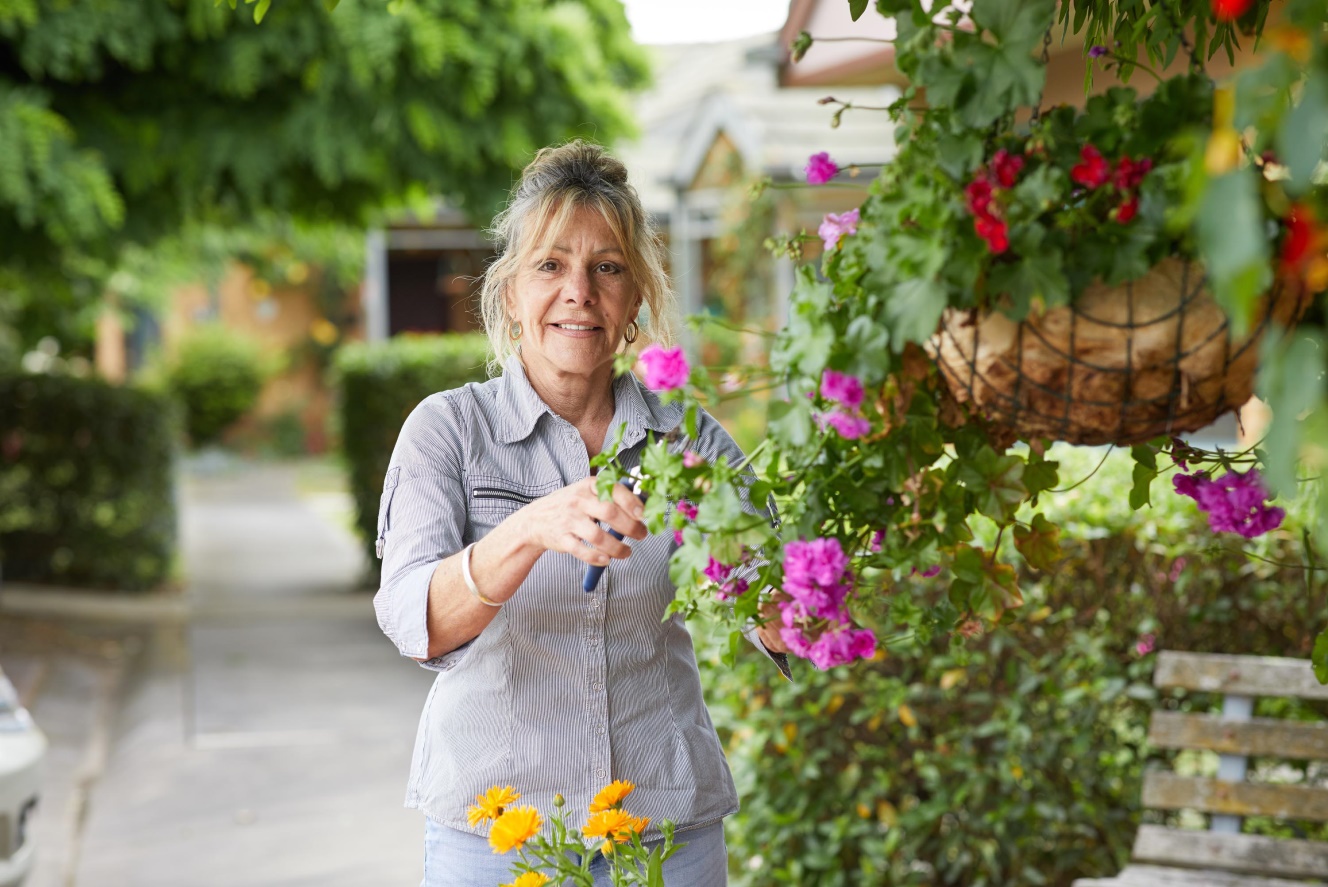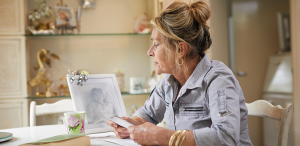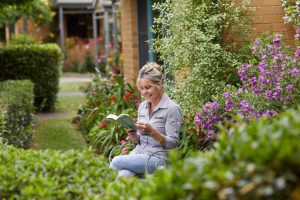
Why are so many older Australian women becoming homeless?
Australia is witnessing a spike in older women finding themselves on the verge of homelessness. As more vulnerable women take desperate action just to find somewhere to sleep, Luke Michael looks at the human face of Australia’s homelessness crisis.
At her lowest point, Gail Carter (seen above with a photo of her Mum) considered pitching a green tent outside her mother’s public housing unit so she had somewhere to sleep.
The 68-year-old would wander around Wantirna South in outer-east Melbourne trying to find a suitable place she could sleep rough if worse came to worst. She would keep an eye out for public spaces that had seats or tree cover – anywhere she felt she could survive living on the street.
“I thought about somewhere around the local church so I’d still be close to mum,” Gail says.
After fleeing an abusive housemate and having to make do with just $150 a week, Gail was forced to sleep on her sick mother’s couch as she struggled to find somewhere to live.
Gail is one of a growing number of older Australian women on the verge of homelessness. Recent ABS statistics show a 42 per cent increase in people over 65 paying unaffordable rents in Australia since 2011, including 132,301 people whose rent is more than 30 per cent of their income.
Anglicare’s 2018 Rental Affordability Snapshot revealed less than two per cent of available housing stock in Australia was affordable and appropriate for a single person on an Age Pension.
This has led women over 55 to become the fastest-growing category of people experiencing homelessness.
Jodie Henry, an affordable housing project manager at Villa Maria Catholic Homes (VMCH), tells Pro Bono News a lot of older women are reluctant to seek help, meaning the problem could be even worse than the figures suggest. She says there are a number of reasons why older women were on the verge of homelessness, including difficulties with the cost of living.
“High rents are a huge factor driving more people to financial hardship,” Henry says. “A lot of women have worked hard all of their lives juggling family and working, but when it comes to their later years they’re not prepared for retirement and able to afford the cost of living along with the rising cost of rentals.”
Henry says it is important to note homelessness is not just people living on the street. It also includes those forced into inadequate living conditions such as sleeping on someone’s couch, or pitching a tent like Gail.
“It could be someone who doesn’t know where they’re going to be in a month… they could be staying with friends or couch surfing with no control over where they live and suffering a lack of dignity,” she says. “A lot of the horror stories we hear are of people staying with relatives who experience abusive situations and can’t really stay where they are.”
The problem is that older people are less likely to seek out services because they’ve had a lifetime of difficult experiences, Henry believes, along with a strong sense of pride that makes it difficult to ask for help when issues arise.
Gail’s issues began in 2015 when she lost her job as an aged care assistant and had to leave her private rental. While living and caring for her terminally ill mother, she was told she would have to wait years for public housing.
“I was staying with my mother and I slept on her floor because she needed to be looked after many times during the night,” Gail says. “I was suffering from depression and the [Department of Health and Human Services] only offered me a tiny matchbox house in Bayswater with no garden and no parks, and said if I didn’t take it I faced a 20-year wait.”
As a passionate gardener, Gail knew green surroundings were important for her wellbeing, and so she refused the offer.
“If I went in there I’d probably die and waste away. It was another sad situation on top of another that just broke me,” she says. Gail says nobody seemed to care as her life spiralled out of control. The constant worrying about her future took a huge emotional toll on her.
“It was difficult because I had to keep strong for my mother. But when I wasn’t with her, I would cry,” she says. “I would cry in the supermarket, I would cry all the time. Because I just felt like there was no help out there.”
Henry says it is a terrifying experience for older women finding themselves in a homelessness situation for the first time. She says social sector organisations like VMCH focus on finding long-term housing for people so they don’t have to worry about moving again after finding a home.
“Imagine your grandmother suddenly finding themselves in a situation where they’re having to use homeless services, it’s pretty terrifying,” she says. “Finding long-term housing is vital because It’s important we make the experience of homelessness as short as possible for people so they don’t enter the [homelessness] system.”
Henry would also really like to see homelessness services working together so they can identify at-risk people a lot earlier. As for what governments can do, Henry says building on the soon-to-expire National Rental Affordability Scheme is critical to address a looming gap in affordable housing.
She said Labor leader Bill Shorten’s election commitment of 250,000 affordable rental properties over 10 years was a step in the right direction, especially as it identified older women as a key target group.
“We’d like to see all political parties putting more resources towards older people in general who are experiencing homelessness, and Shorten’s acknowledgement of women over 55 as a group at risk is great because it’s not always on the agenda,” she says. “We also want more programmatic resources for older women. There is a service called Assistance with Care and Housing which needs so much more money invested into it because it looks at case management for older people. “It’s not just putting a roof over their head it’s also looking at what women want so they have a quality of life rather than just somewhere to sleep.”
Luckily for Gail, VMCH was able to help her secure a permanent home at Villara (public housing units) in Wantirna South, where her mother lived. Despite feeling like she had “won the lotto” when she heard the news, it was a bittersweet moment for Gail, whose mother sadly passed away just before she moved in.
“My mother passed away in my arms and afterwards I got the news that I had the house next door,” Gail says.
Gail is thriving in her new living arrangement, supporting her neighbours at Villara by helping them with their gardening, taking in the bins – even taking them to medical appointments.
These efforts saw Gail recognised with a Senior Volunteer Achievement Award at the Aston Community Awards in September last year. But for Gail, it’s not about awards, it’s about helping others in need.
“I do a lot of the gardening for people here because it’s therapy for me and I love gardening,” she says. “I enjoy helping people because I know what it’s like to be on your own.”
Looking towards the future, Gail admits she isn’t looking too far forward and rather is taking things day-to-day. “I try to make the best of every moment,” she says. “All I can do is enjoy each day, help others, and try to be happy.”
Reprinted from https://probonoaustralia.com.au/news/2019/01/many-older-australian-women-becoming-homelessness/


